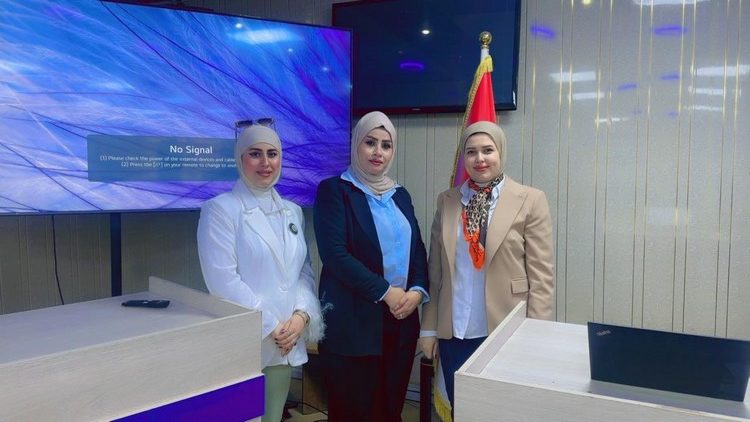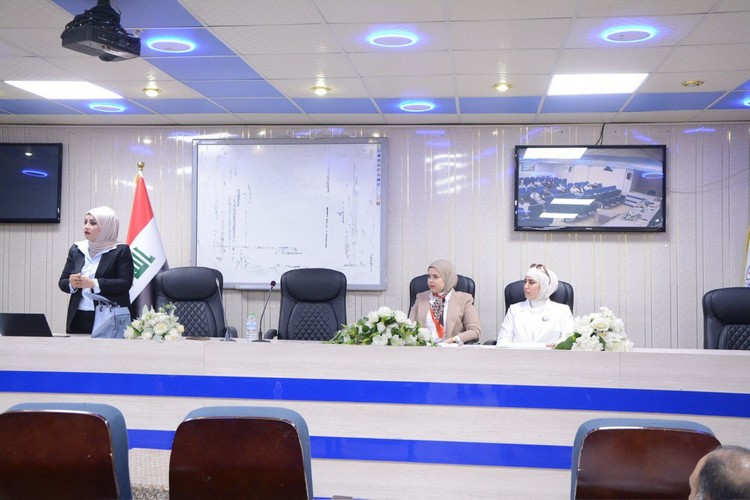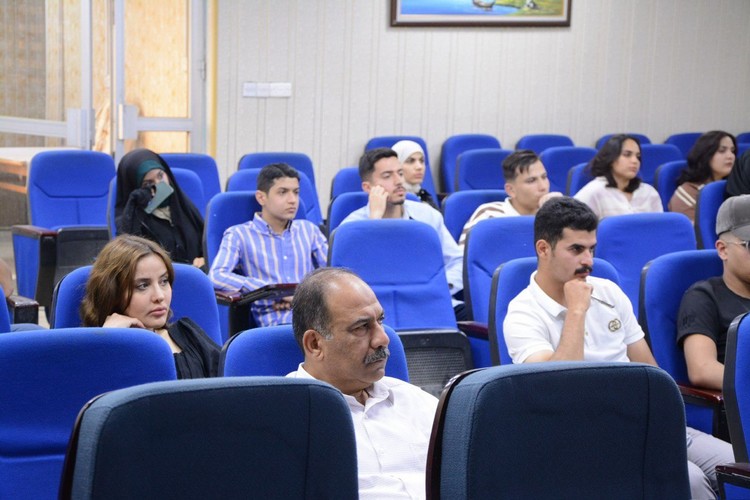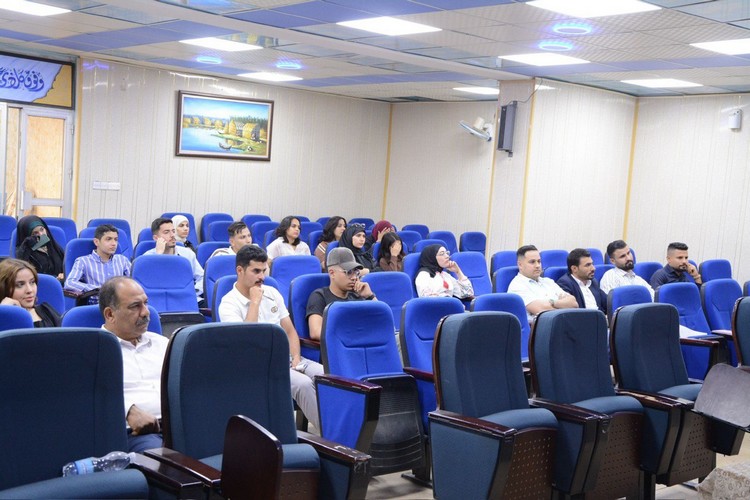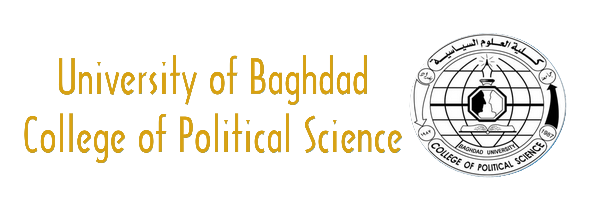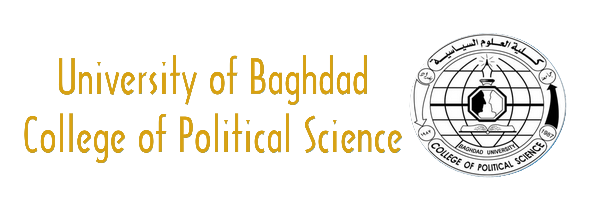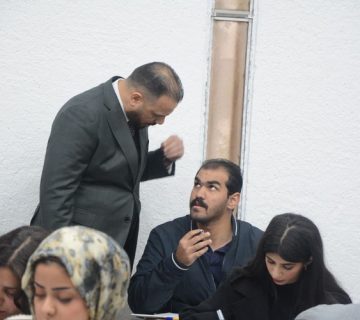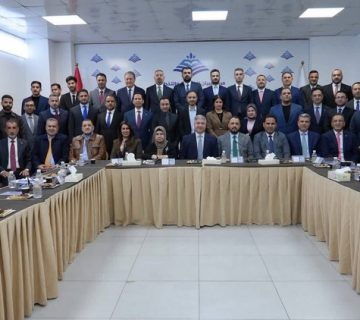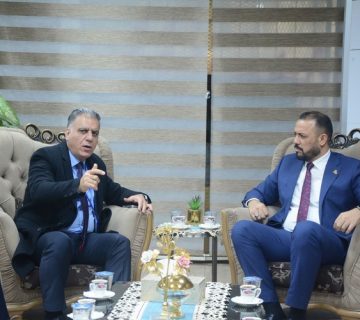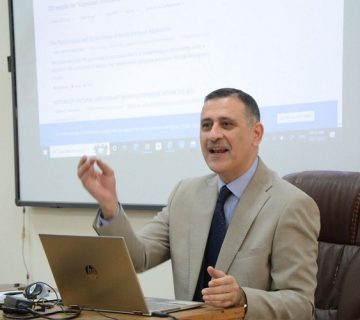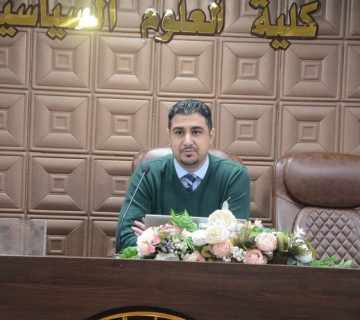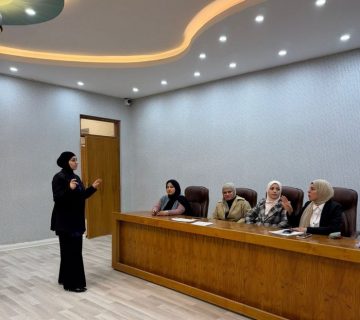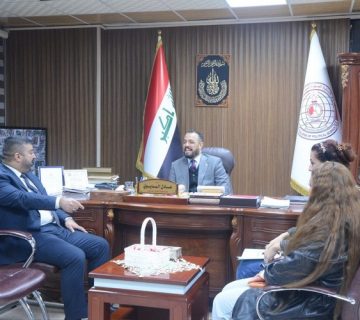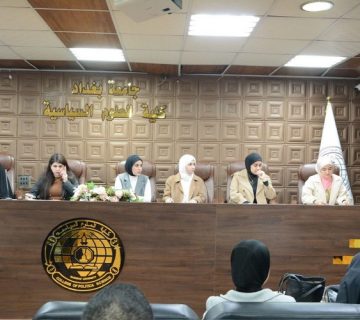As part of its efforts to promote women’s digital empowerment and develop their competencies in modern technology, the College of Political Science at the University of Baghdad organized a training workshop on Tuesday, May 6, 2025, entitled “Electronic Literacy and Women’s Technological Empowerment.” The workshop was held in collaboration between the Women’s Affairs Unit and the Continuing Education Unit, in the college’s Jihad al-Hasani Hall.
The workshop began with a welcoming speech by the head of the Women’s Affairs Unit, Dr. Rana Abdul-Hussein, in which she emphasized the college’s commitment to supporting women academically and socially, and its commitment to providing a stimulating educational environment that enhances women’s presence in light of rapid digital transformations.
The workshop featured the presentation of specialized research and analytical papers. Assistant Lecturer Athraa Muhammad Abdul-Ridha reviewed the importance of digital literacy and its role in raising women’s competence in the educational and academic sectors, emphasizing that digital empowerment is no longer an option, but a necessity.
In turn, Assistant lecturer Amani Mohammed Sabry highlighted the most prominent challenges facing women in the digital environment, including the technological gap, poor training, and societal restrictions. She called for reforming academic policies to ensure greater inclusiveness and justice.
Dr. Rana Abdul Hussein highlighted in her research paper the close relationship between e-literacy and technological empowerment, emphasizing that women’s engagement in the digital world is an important gateway to achieving societal advancement.
Dr. Ayat Nasser Jaber concluded the sessions by presenting practical strategies for women’s technological empowerment, proposing practical models that can be implemented in academic institutions to support and empower women digitally.
The participants concluded with a number of important recommendations, most notably:
Incorporating digital literacy courses into university curricula; enhancing opportunities for ongoing digital training for female students and employees; and encouraging research and studies addressing women’s and technology issues. The college is also establishing specialized units within universities dedicated to empowering women technologically and providing them with technical and cognitive support. This workshop is part of a series of activities implemented by the college to prepare Iraqi women to engage effectively in an advanced digital environment and equip them with the skills necessary for success in various areas of contemporary life.
